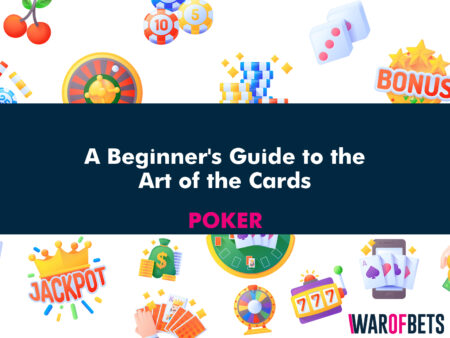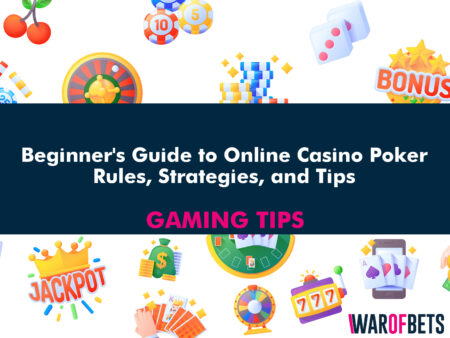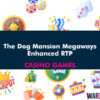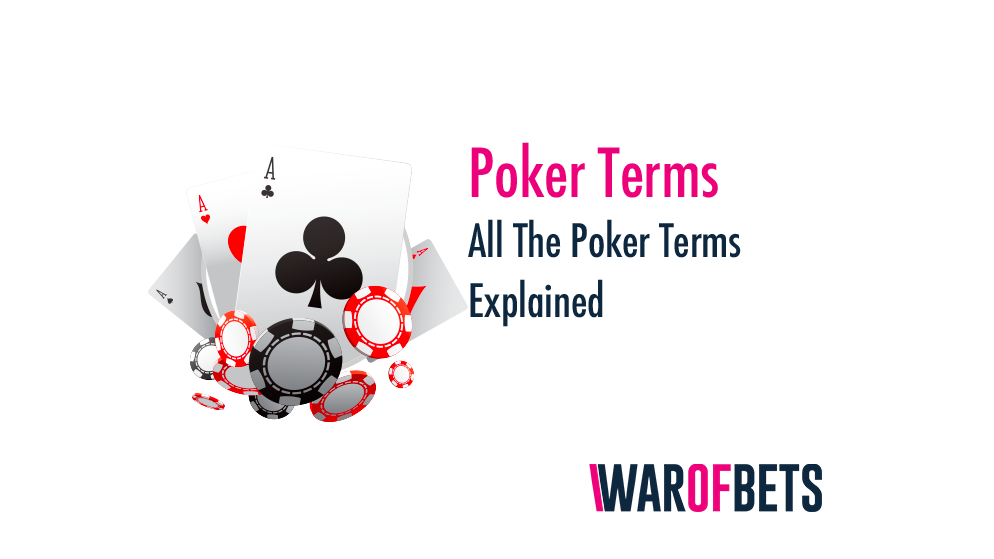
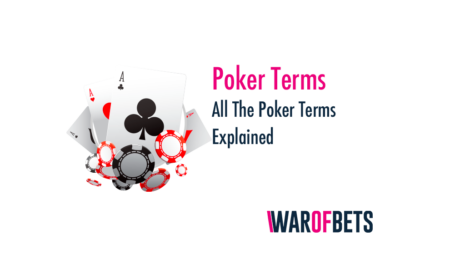
What are All Poker Terms
Poker is one of the most played card games, and there are many Poker Terms and Definitions. Knowing these terms will increase your chance of winning in every hand. In this article we want to talk about all the poker terms and explain each single poker term. So let’s jump right in.
- Able
A term for the player just to the left of the dealer in games that use forced betting.
- Action
The player getting warned by the dealer, this happens when the players don’t place their bet within the period they should. The dealer warns the players after a certain period.
- Ante
Money that every player puts in the pot. Used in Stud and Draw, but not in Hold’em or Omaha.
- Consecutive cards (Connectors)
2 cards that are consecutive in terms of values in the starting hand. For example; jack-10, ace-king, 7-8
- Advantage (Edge)
As the game progresses, the luck factor gradually decreases and the players’ skills become more effective in the results. The fact that one player is more experienced and skilled or has a higher balance than the other gives the player advantage, albeit small.
- Aces Full
Havin any pair of Ace next to 3 Aces.
- Ace High
There is no card ranking in a 5 handed hand and the player has only one Ace in his hand.
- Aces Up
One of the two different pairs in the player’s hand is a pair of Aces.
- Ace
According to the poker game played, it is the highest or lowest card in the deck.
- Alligator Blood
Continuing the game despite having less money than other players.
- All in
If the player does not have enough chips to enter the game and see the amount in the middle, they bet with all their money or put all their remaining chips in the middle.
- American Airlines
Two As Angle-shooting: Unfair tactics Ante (The money put in at the beginning): The amount that each player reveals before the game starts. It is used only in Stud and Draws poker game types.
- A-Game
The game with the highest prize in a certain venue.
- ABC Player
The player who follows a predictable and readable betting template. Alias (Poker Nick): The name other players will recognize you.
- Bet
The chips placed in the pot Bad Beat: The player who has a good hand before all the visible cards are opened in Texas Holdem, loses and loses his hand when all the cards are opened.
- Betting Limits
These are the limits that the player can play. The minimum limit of the player in a 0/30 game is 0, the maximum limit is $ 30.
- Betting rounds
Each game consists of 4 betting rounds starting from the first player to the left of the mark (button). These tours are as follows:
The preflop (pre-flop) – a bet made before the card is opened on the table.
The flop round – 3 community cards are opened to the table and the bet starts again.
The 4th card round (turn round) The 4th communal card (turn) opens and the bet continues.
The river tour 5. The bet made after the last community card was opened. This is followed by the opening of the hands (showdown).
- Balance (bank roll)
The amount of money you can use in the game.
- Fish
Usually the nickname given by the winning players to the losing bad players.
- Backdoor
Changing your hand you want to play. While waiting for Straight Flush, it’s like your hand turning into normal Straight.
- Bankroll
The amount of money you have.
- Blind
It is the amount of blind made by the player after two rows of the dealer before the game starts. This bet is equal to the minimum bet limit of the table. For example, on a $ 3- $ 7 table the big blind would be $ 3.
- Big pair
Refers to 10 or more fairy.
- Big slick
Hand with aces and kings.
- Blank
Card that does not express value.
- Bluff
You have to bet to make your opponent’s think you have a better hand, and in this way make them get out of the game even though you have a worse hand than them.
- Board
Texas Holdem Da “seen card” Flop, Turn, River cards are all open on the table.
- Boat
Hand consisting of three cards of the same number and two of the same number in online poker.
- Bot
Poker is played by a computer software.
- Bop
Failure to use the right to pass or increase and transfer the order.
- Bottom Pair
Playing with the lowest double card in the flop round. You have Ace-Fly and 5-Core in your hand, 10-Diamond, 6- Cup, 5-Fly in Flop.
- Brick & Mortar
Poker room or casino.
- BRB (Be right back)
Player states that he will leave the table for a short time.
- Bullets
Refers to double aces.
- Burn
In order to prevent any player from recognizing the cards on the table, eliminating a paper from a closed deck on the table before opening common cards in Texas Holdem.
- Button
White acrylic disc indicating the dealer on the table.
- Whole hand
The hand defined by all 5 cards. The city is color, flush, full house or square.
- Buy-in
It is the entrance fee paid when entering the poker tournament. If you are participating in the tournament by paying $ 50, the $ 45 goes to the prize table, $ 5 is the fee that must be paid to the poker room that the game will be played.
- Bring-in (mandatory bet)
In the stud game, the bet that must be made in the first betting round. Usually the player showing the lowest card has to bet; but in some games the player with the highest card bets. However, bring-in is only done on the original betting round. In all subsequent rounds, the player with the highest hand on the table can bet first, but is not obliged to do so.
- Call (see the bet)
Accepting a made bet.
- Casino’s commission (Rake)
The casino’s share of the middle coin to earn money from the poker game. In low limit games, the casino usually takes a certain percentage of the money in the middle. This percentage is usually at most 10% of the money in the middle. In higher limit games, the Casino either receives an hourly game fee from players or deducts a certain fee from it each time the player gets the button.
- Pocket pairs
A pair of cards of the same value in the player’s hand. Such as As-As, King-King, 2-2, 7-7.
- Check-raise
When another player bets, he thinks to raise and passes (indicating weakness of the hand). Check-raises can be done in all casino poker games; however, they are not made in some games played at home.
- Check (pass)
Although there is an option to bet, refuse this option. If someone else has placed a bet, check cannot be made; At this point, the player must see the bet by saying “call”, increase the bet by saying “raise” or leave the game by saying “fold” but however, if nobody has placed a bet yet, the player says “check” (pass) and delegates the bet option to the next player.
- Cracked
Loss of the player with 2 Aces on the deal.
- Worthless card (Rag)
A low value card that will not benefit the player.
- Outer city (Open-ended straight)
Can be created in 2 ways. If the player holding the pair of Kings-Queens has a Jack or 10 card on the table, he or she can make a city if 9 or Ace comes. This hand is called the outer city.
- Opening hands (Showdown)
All players remaining in the pot after the last betting round open their hands in order for the winner to be determined.
- Fourth Street (fourth hand)
The fourth communal card in Hold’em and Omaha games (in these games the 4th card is more often called “turn”). It is also used in 7 Card Stud to indicate the fourth card.
- Fifth Street (fifth hand)
The fifth community card in Hold’em and Omaha games (in these games, round 5 is more often called the “river”). It is also used in 7 Card Stud to indicate the fifth card.
- Flop
In the Hold’em or Omaha game, the first three communal cards that open to the table together.
- Fold
To get out of hand, to leave hand.
- View (Flat call)
A player with a good hand has the chance to raise the bet while not increasing the bet but continuing with the same amount.
- Hole cards (closed cards)
Cards dealt face down, not seen by other players.
- Inner city (Inside straight)
The player, who holds 6-7 pairs in his hand in a situation where 5.9 and the girl is at the table, makes the city inside with the arrival of 8 as the last common card.
- Inside (Gut shot)
A common card that the player waits for an inside straight, for example, but is unlikely to open.
- Bankruptcy (Bust)
The term used when a player loses all his chips on the table or all of his money from his balance.
- Hints (Tells)
Behaviors that hint at a player’s moves or strategies.
- Sign (Button)
A signal that passes from player to player clockwise in each hand, showing who the dealer is. The player with the sign always plays the last, the first player to his left starts the game.
- Hole Cards
They are the starter cards dealt to the player. Sometimes called “pocket cards”.
- Bad defeat (Bad beat)
The defeat of a favorite player to another player who failed.
- Limit
Determines the value of the blind as a dollar or currency used. It shows how big a game is. In a game with a $ 50 bet limit, of course, you should have a larger budget than a $ 0.50 game.
- Limping
Seeing the big blind made before the card is opened on the table.
- Table (Board)
Five cards to the table that all players can see and use to organize their hands.
Flop – The first 3 cards to the table
Turn – 4th card to the table
River – 5th card to the table
- Narrowing the Field
Betting or raising in order to remove players who have worse hands than yours, but can get better if they stay in the game.
- Nuts
The best hand possible. This term is used almost exclusively in the case of a special hand (otherwise “nuts” would only be used for a royal flush), for example, in Hold’em game, a player with 8-9 will have “the nuts” if his flop cards come 6-7-10. In such a case, the best possible hand is “straight” with 6-7-8-9-10. But if the Turn card was Jack, the Queen in River, the nuts of a player with A-K cards would be 10-J-Q-K-A straight.
- Grinder
The player who aims to get a big balance from his small wins by displaying a careful and frugal game.
- Possible cards (Outs)
The probability that the cards are required for the player to win. The player who has 99 pairs in his hand and needs another 9 to win means he has 2 possibilities.
- Dead hand (Drawing dead)
The hand that is unlikely to win.
- Community cards
5 common cards on the table that all players can use.
- Win the pot (Stack the pot)
Win the middle prize and add it to your balance.
- Pot
The money, the pot, which the players standing in the middle of the table and maintaining the hand are trying to make.
- Position
Changing position of each player according to the dealer (Dealer). As the dealer button changes, the player’s position changes. These are named as follows:
- Position Definition
Early: The top 3 players to the left of the Dealer. It is the least desired position since the order of playing is the first of these players.
Middle: 4,5,6,7 after the distributor. ranked players.
Late: Players on the 8th and 9th place. Playing in this position gives players an advantage as they have already seen others’ moves and bets.
On the bottom: The player in this position last plays so that he is in the most advantageous position for that hand.
- Rock
However, he is a very cautious player who bet or raise if he has a very strong hand.
- Free game (Ring game)
A type of game where all bets are made directly from each player’s own balance and played hand in hand, without any participation fees. In this game, everyone is responsible for their own hands. Players can join this game at any time and leave whenever they want. It is sometimes referred to as a cash game.
- Set
If the pair of cards in the player’s hand matches one of the cards on the table and creates a triple, this is called a set.
- Small Blind
The bet that the person sitting to the left of the button must make. It is usually equal to half of the small bet in a game. For example, in a 10-20 game, the small blind would be $ 5. Sometimes the small blind may be equal to another rate of the big blind.
- Steam
It is said that players get angry and lose control and start playing badly.
- Streak
No matter which card comes, to be in a position to establish a winning hand.
- Suit
2 cards of the same suit dealt to the player’s hand. A pair of cards made up of hearts, clubs, spades or diamonds.
- Ceiling (Cap)
There can be a maximum of 3 raises in a round of betting and the last one is called the ceiling.
- Draw hand
A hand that needs a single card to own a flush or city. For example, the winner of the player holding the 10.9,8 series of jacks in the match type at the beginning depends on the cards to be unlocked. To have the city, 7 or girls; it needs any core to have a flush. When the 7 of spades or daughter comes in, this player may even have a colorful flush, but if none of these cards come out, this hand has no value.
- Heads up
Game consisting of 2 people.
- Tilt
The player often loses control and plays like crazy after losing with good hands in a row.
- Trap
In case the player is sure that he will win, the other players will stay and raise the bet.
- Outstanding card (Overcard)
The closed cards in the player’s hand, which have a higher value than the cards in the flop, the Ace-King pair 5.7 are superior cards compared to the Vale flop.
- Weak hand (Dominated)
The hand that is unlikely to win compared to competitors. For example, if there is an ace on the table, the ace-king pair is superior to the ace-valet pair and In this case, the player with the ace-valet pair is weak and has a low probability of winning because he has a lower card in his hand.


